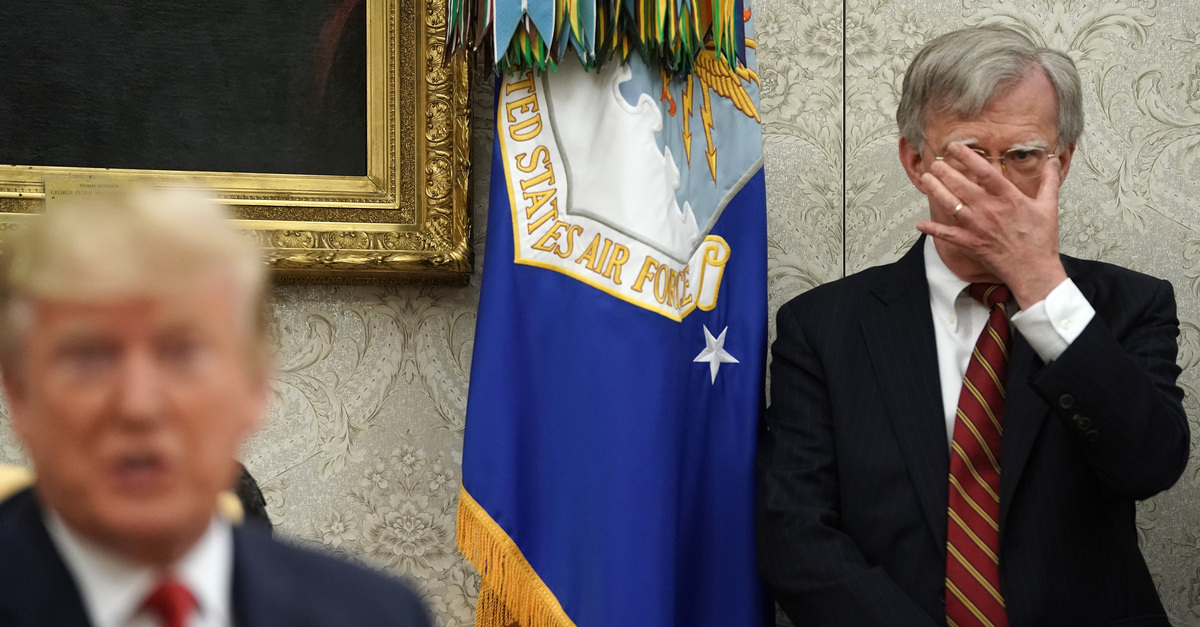
President Donald Trump has vehemently denied the bombshell allegations in John Bolton’s forthcoming book, impugning the former National Security Adviser as a disgruntled ex-employee willing to trade in lies about his short-lived tenure to boost book sales. But while Trump has used this character-assassination strategy to minimize damning revelations about his administration in the past–and to great success–in this particular instance the tactic is very likely to backfire. Several legal experts pointed out that by directly disputing the veracity of the book’s claims in public, Trump has effectively waived his already disputable claim to invoke executive privilege, thereby undercutting the White House’s plan to stop Bolton from testifying in his impeachment trial.
“I NEVER told John Bolton that the aid to Ukraine was tied to investigations into Democrats, including the Bidens,” Trump tweeted Monday morning after reports of Bolton’s manuscript surfaced. “In fact, he never complained about this at the time of his very public termination. If John Bolton said this, it was only to sell a book.”
Executive privilege, first recognized by the Supreme Court during the Watergate scandal, essentially refers to the president’s right to withhold information pertaining to discussions with high-ranking White House officials that are sensitive in nature in order to foster candid deliberations and promote forthright communication within the executive branch. But that argument is no longer available to the president, according to former federal prosecutor and University of Michigan Law School professor Barbara McQuade.
“Trump’s tweets directly denying the substance of Bolton’s reported allegations waive any privilege that might have protected them from public disclosure,” McQuade wrote on Monday. “Privilege is meant to keep a president’s secrets confidential. If the president reveals those secrets or publicly discusses the conversations himself, there is no longer any need to protect them from disclosure.”
Professor Ryan Goodman of New York University Law School further explained why Trump’s tweeting was “another unforced error” that constituted a waiver of privilege.
“What’s remarkable about this tweet thread by President Trump responding to specific allegations in [Bolton’s book],” the former Department of Defense attorney wrote. “These statements by Trump may constitute a waiver of executive privilege [because he] can’t publicly discuss the info, and then say [Bolton] can’t.”
CNN legal analyst, former federal prosecutor and Columbia Law School lecturer Jennifer Rodgers made a similar assessment.
“Publicly engaging on the content of these conversations waives any privilege claims to them,” she wrote.
As did MSNBC legal analyst and former Assistant U.S. Attorney Glenn Kirschner.
[image via Chip Somodevilla/Getty Images]